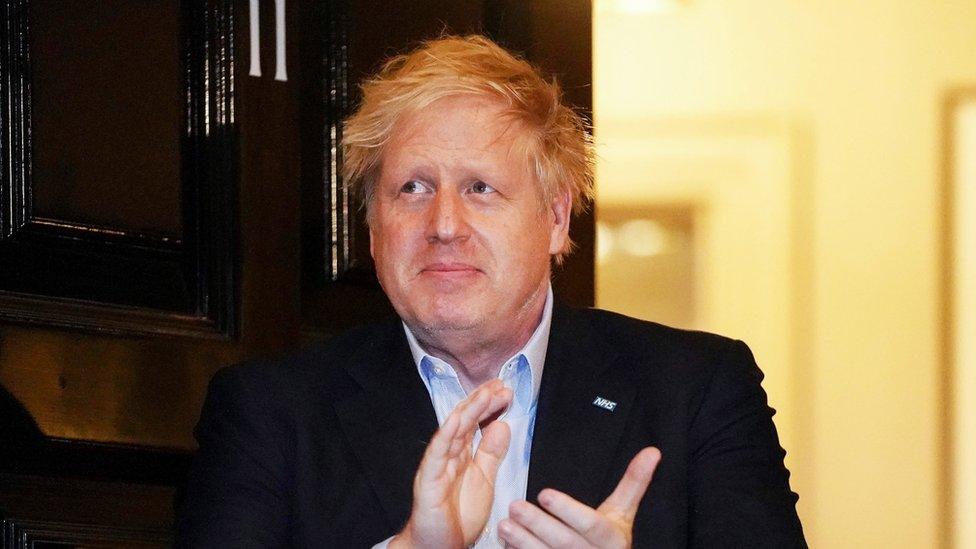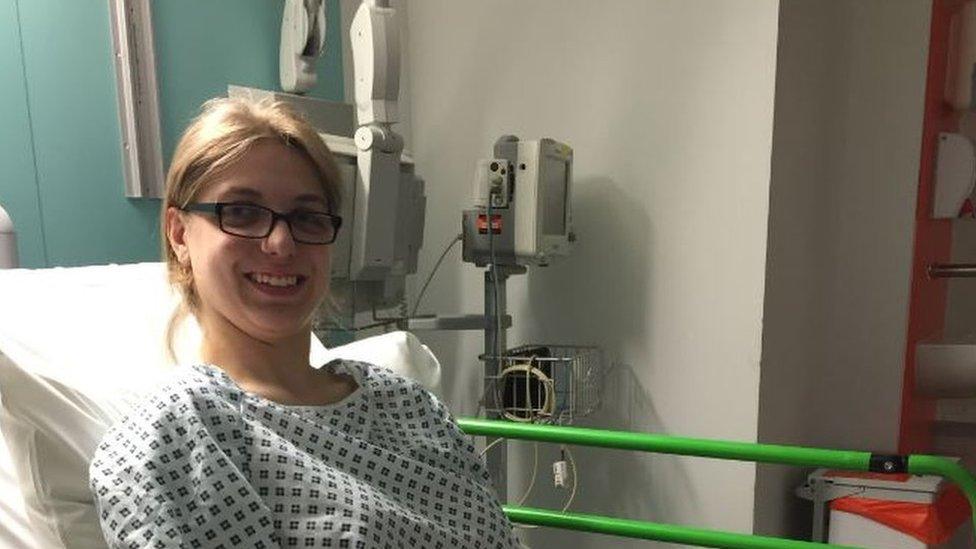Coronavirus: Morning update
- Published
Here are five things you need to know about the coronavirus outbreak this Tuesday morning. We'll have another update for you at 18:00 BST.
1. Boris Johnson in intensive care
On Monday night, after his coronavirus symptoms worsened, the prime minister was moved to intensive care, where people who are very ill are looked after. Downing Street said it was to ensure he would have quick access to a ventilator if one was needed. This video shows what goes on in an intensive care unit treating coronavirus patients.
The BBC's Fergus Walsh meets medics treating patients with Covid-19 at University College Hospital London

2. Foreign secretary to deputise
Dominic Raab - as First Secretary of State - will stand in for the prime minister when needed. Our political analyst Peter Barnes explains how the system works in these highly unusual circumstances.


3. Thousands left off high risk list
The BBC has spoken to transplant patients and people with severe asthma who are not on the government's list of vulnerable people. Many are worried it will affect their ability to get food and medicines while they are "shielding". Read more on why these individuals need to take extra care.


4. Volunteer army gets to work
Three-quarters of a million people responded to the government's call to help support the NHS in England. They'll be delivering medicines, driving patients to appointments and making regular phone calls to check on people isolating at home. Meet some of the people they'll be helping here.
Emilie is going from house to house delivering items to women in need

5. China reports no new deaths
The pandemic began in China's Wuhan province, but on Tuesday, the country reported no new deaths linked to the virus for the first time since it started publishing daily figures in January. There are some questions around those numbers though.


Don't forget...
... to take care when reading too much into daily death tolls. The BBC's Rachel Schraer explains why the experts want us to be cautious.
You can find more information, advice and guides on our coronavirus page.


What questions do you have about coronavirus?
In some cases, your question will be published, displaying your name, age and location as you provide it, unless you state otherwise. Your contact details will never be published. Please ensure you have read our terms & conditions and privacy policy.
Use this form to ask your question:
If you are reading this page and can't see the form you will need to visit the mobile version of the BBC website to submit your question or send them via email to YourQuestions@bbc.co.uk, external. Please include your name, age and location with any question you send in.